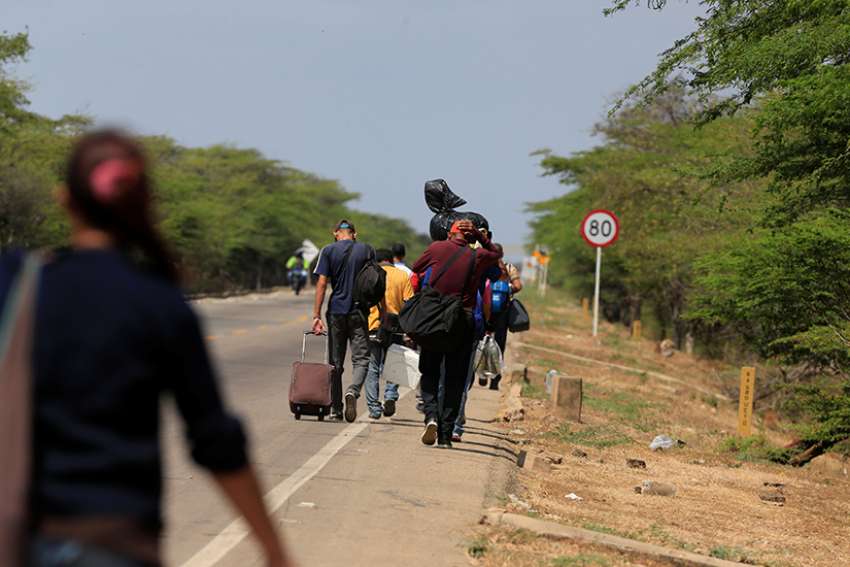The call for action comes as violence, food shortages and hyperinflation force thousands of Venezuelans to flee toward Colombia and other South American countries.
In Colombia, which has taken in most of the migrants, the number of Venezuelans doubled in a year, from 300,000 to 600,000, according to government estimates. This has placed a heavy toll on hospitals, schools and municipal governments, which are struggling to serve the incoming population.
"Many people who are coming are searching for medicines and food," said Bishop Victor Ochoa Cadavid of Cucuta, the largest city on Colombia's border with Venezuela. "These people are suffering a lot, and we are trying to do what we can to provide some charity."
In Colombia, the church has provided food pantries, shelters and medicines to the Venezuelan migrants; Caritas, the church's charitable aid agency, even helped some of them with bus tickets toward their intended destinations. Many Venezuelans who enter Colombia arrive in the country with little or no cash, as wages plummet in their economically devastated nation.
Bishop Ochoa said his diocese already has served more than 350,000 lunches to vulnerable Venezuelan migrants at eight church-supported food pantries in the city. In February, the Colombian bishops' conference said that, every day, the church is assisting some 9,000 Venezuelan families with food, shelter and psychological support.
"Some are just coming to look for food or medicine and then head back to Venezuela," Bishop Ochoa told CNS. "Others are even crossing the border with their pets ... with the intent of settling down here."
In response to the large wave of migrants – who sometimes enter the country illegally – Colombia has toughened border controls, sending an additional 3,000 soldiers and police to patrol its 1,400-mile-long border with Venezuela. At the same time, the Colombian government has offered temporary residency permits to Venezuelans who are already in the country, to help them to work legally and to stop potential exploitation by unscrupulous employers, who abuse undocumented immigrants.
The bishops' conference has refrained from taking any position on the country's immigration policy, said Msgr. Hector Fabio Henao, director of Caritas Colombia.
"But we are calling for the Venezuelan people to be treated with dignity," Msgr. Henao told CNS. "We think the problem should be tackled by focusing on their dignity and rights."
Msgr. Henao said the bishops' conference has designated its annual Lenten campaign to help Venezuelan immigrants. Last year, the bishops' Lenten campaign raised $300,000 for flood victims.
Msgr. Henao acknowledged that as the number of Venezuelans in Colombia grows, so does the fear among some sectors of society that the new immigrants will take away jobs from locals or turn to criminal activities.
Colombia's attorney general recently released a report that said 1,869 Venezuelans had been arrested by police over the past 12 months for crimes like burglary, drug trafficking, smuggling and illegally carrying weapons.
But Colombian bishops have pointed out that only a small percentage of immigrants are committing crimes.
Msgr. Henao said the Colombian church is urging its followers to welcome the new arrivals and realize that they also bring with them skills and experiences that will contribute to the country's development.
"The episcopal conference is united in expressing its solidarity toward Venezuelans," he said. "There are no voices in the church calling for restricting their entry into our country."


